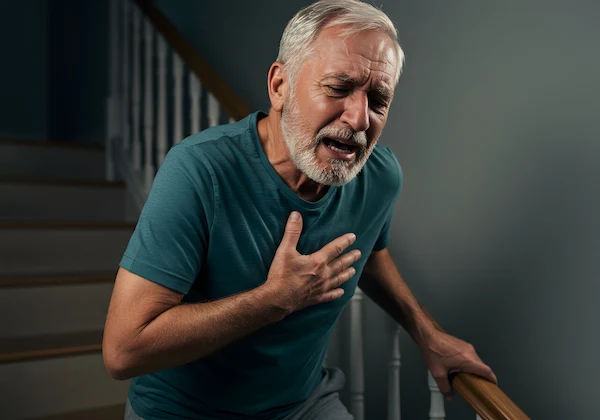- female
- 30 Years
- 22/01/2025
I'm curious about my heart rate, which seems to be consistently between 90 and 110 beats per minute. Is this natural, or should I be concerned about any possible heart issues? I don't have any known heart problems, but I'm wondering if it's something I should get checked out just to be safe. What do you think?
Answered by 1 Apollo Doctors
A heart rate of 90 to 110 beats per minute can be considered normal for adults at rest. However, it is always important to monitor your heart rate and consult with your healthcare provider for personalized advice. If you are looking to lower your heart rate for preventive measures, you can try medications like Metoprolol (brand name: Lopressor) at a dosage of 25-100mg per day as prescribed by your doctor.
Dr. Anshul Suggests...
Consult a Cardiologist
Answered 04/07/2025
0
0

More Cardiology Health Queries
View allI'm really curious about something. Is it possible to have a heart stent removed without undergoing bypass surgery? I'm trying to understand if there's a way to do this less invasively. Would love to hear your thoughts!
cardiac opinion
Answered by 1 Apollo Doctors
My dad is 62 and has been having some real trouble with his breathing. After seeing a doctor, the breathing got a bit better, but he's still coughing a lot. A month later, something strange happenedhe was in bed and suddenly gas was coming out of his mouth, and he had chest pain at the same time. After using the toilet, he felt a little better. Now he's in a hospital in Siliguri, and the doctors there say his heart is a bit weak. I'm thinking about consulting with doctors in South India, but I'm a bit lost on where to go. I heard CMC Vellore has long wait times, and Apollo Chennai is a bit too pricey for us. Can you help suggest the best hospital and doctor in the south for his situation?
Considering your father's condition, it's essential to consult with a cardiologist specializing in heart conditions. Here are some top hospitals and doctors in South India: Top Hospitals 1. Apollo Hospital, Chennai - Known for its advanced technology and world-class doctors, consult
Answered by 1 Apollo Doctors
I'm trying to understand what it means when there's a regional wall motion abnormality detected in an echocardiogram. Is this something related to ischemic heart disease? What does that imply for my heart health? I'm feeling a bit anxious about all this and would appreciate some clarity.
suggestive of bundle branch block .A cardiac opinion is required
Answered by 1 Apollo Doctors
Disclaimer: Answers on Apollo 247 are not intended to replace your doctor advice. Always seek help of a professional doctor in case of an medical emergency or ailment.



